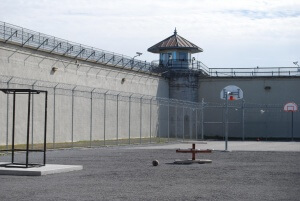What are a Prisoners Rights to Religious Practice While Incarcerated?
September 23rd, 2016

A prisoner’s right to free religious practice can only be infringed upon if a compelling government interest exists.
As American citizens, we know that our most basic constitutional rights protect freedom of religion as outlined in the First Amendment of the United States Constitution. The First Amendment contemplates the separation of church and state, as we have discussed before, and ensures our absolute right to practice a faith of our choosing. The government may not interfere with one’s religious practice unless there are extenuating circumstances. These extenuating circumstances, or compelling interests, became codified in the Religious Freedom Restoration Act (RFRA). Essentially, the federal government cannot place undue burdens on a person’s religious practice unless a compelling government interest exists. If a compelling interest exists, then the government must still use the least restrictive means possible in imposing regulation. The “compelling interest” test has been applied in a case-by-case basis and there is no clear definition of what may or may not be deemed compelling.
The following are examples of the types of governmental interests deemed important enough to overcome regulation of religious practice:
- National security
- Preserving the lives of others
- Violation of other Constitutional provisions
In addition to the compelling interest standard, Congress has also enacted the Religious Land Use and Institutionalized People Act (RLUIPA). RLUIPA, reiterating the notion in RFRA, provides that a government entity cannot impose a substantial burden on prisoners without showing a compelling need for the burden.
As recent as last year in Holt. v. Hobbs, the U.S. Supreme Court shed some light on whether prison policies instituted in the name of security are sufficient to satisfy the compelling interest test. The court found that the Arkansas Department of Corrections violated a prisoner’s First Amendment rights by refusing to allow him to grow a one-half inch beard. The department of corrections claimed the beard violated grooming policy and the grooming policy was a necessary security measure. Holt, however, claimed that he was required to grow it pursuant to the faith of Islam. The court ruled in favor of Holt stating he exhibited sincere devotion and that the prison did not demonstrate reasonable accommodation.
Do Jails on Native American Land have to Abide by the U.S. Constitution or RLUIPA?
There are jails on Native American land in the United States, but the U.S. government has little control over them. Or course, this political autonomy stems from ongoing discourse regarding tribal sovereignty between Native Americans and the federal government. Each tribe develops its own justice system and as of 2014, the Bureau of Justice Statistics indicate that there were approximately 79 jails in Indian Country containing 2,380 inmates. Tribal courts only have jurisdiction over members of their tribe, but can these individuals claim constitutional violations if they are denied religious freedom in the Indian Country jails? Technically, no. However, Congress enacted the Indian Civil Rights Act (ICRA) in 1968 which created a statutory mandate enforcing most, but not all, of the Bill of Rights of the Constitution. The ICRA provides that tribes may not prohibit the free exercise of religion.
Laws regarding freedom of religion while serving jail time are complex and often decided on a case by case basis. Universal Life Church is committed to providing you with up to date information on an increasingly complex justice system.
(photo courtesy of Larry Farr)



I understand that inmates families can’t send religious literature in the mail to inmates in Colorado. Is that true?